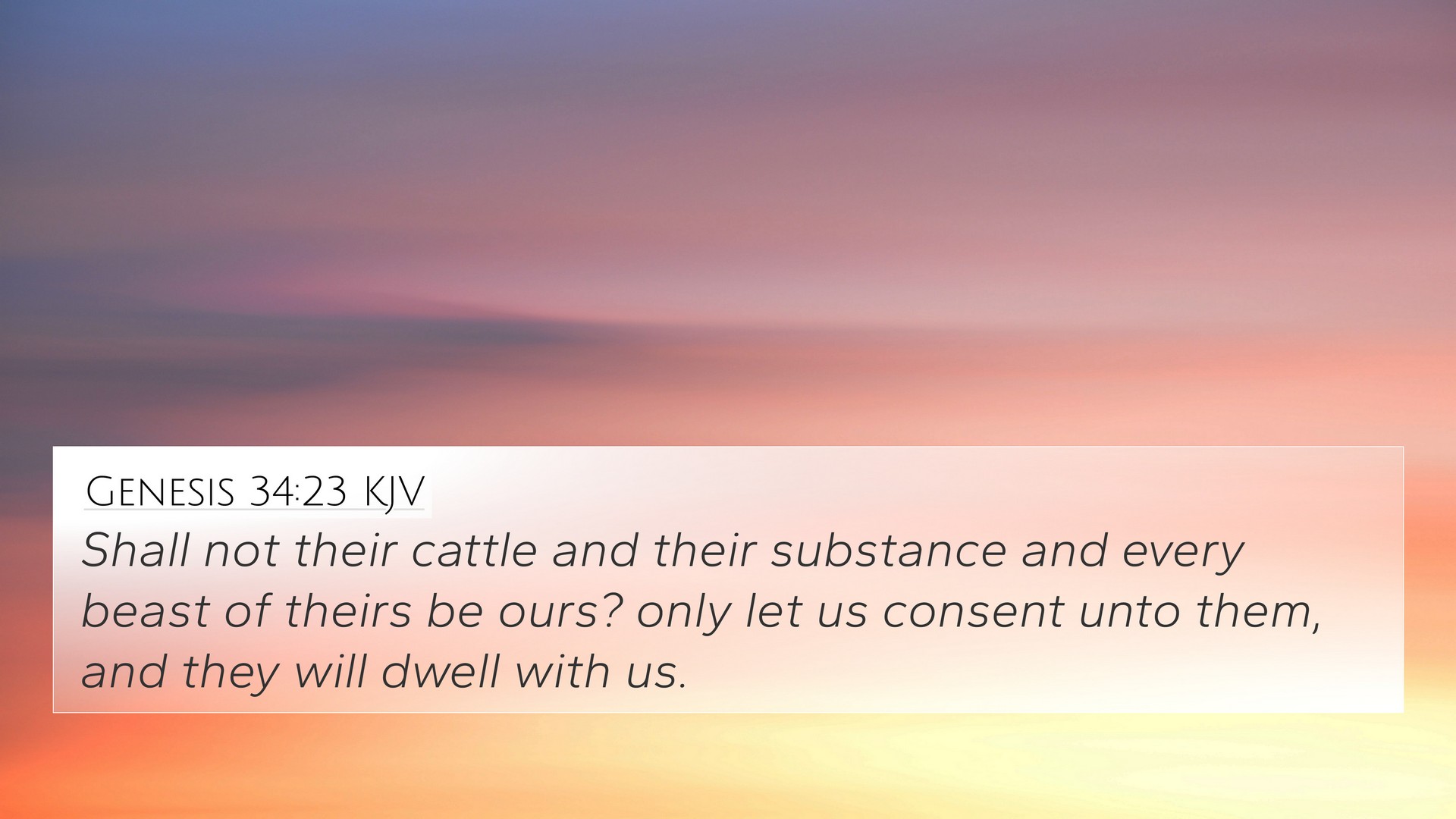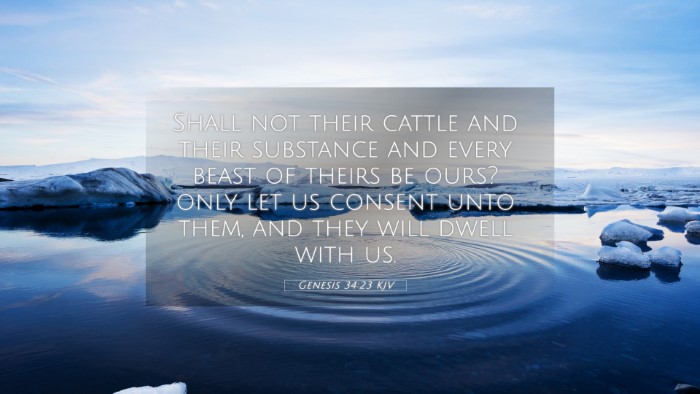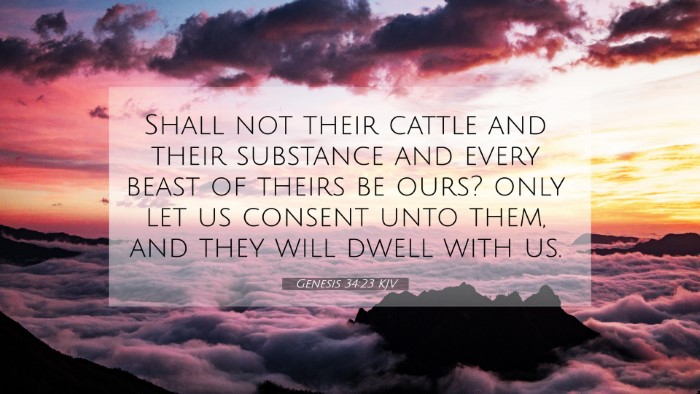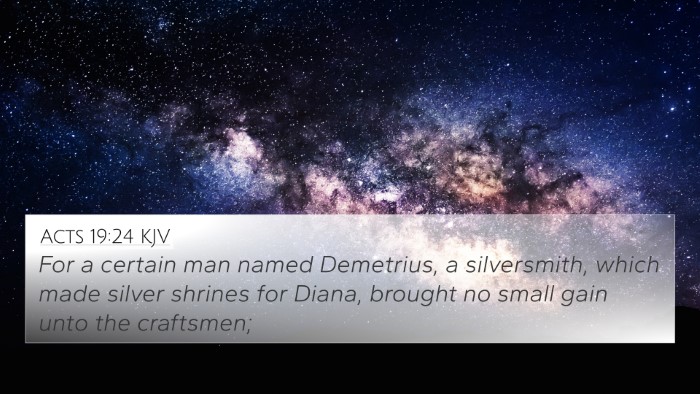Meaning and Interpretation of Genesis 34:23
Genesis 34:23 reads: "But their cattle and their substance and every beast of theirs shall we take to us; and we will be in one consent with them, and they will dwell with us, and be one people."
Overview of the Verse
This verse is part of the narrative where the sons of Jacob negotiate terms after the incident involving their sister Dinah. It illustrates the Machiavellian tactics employed by the Canaanites to integrate into the broader community of Jacob without genuine commitment to the covenantal practices of the Israelites.
Commentary Insights
-
Matthew Henry's Commentary:
Henry emphasizes the duplicitous nature of Shechem’s proposition. He notes that the request for circumcision is superficial, allowing Shechem to exploit the situation for personal gain. The emphasis is placed on how the Canaanites were seeking allegiance through deceptive means rather than genuine covenantal relationships.
-
Albert Barnes' Notes:
Barnes points out that the passage reflects the worldly mindset of prioritizing material possessions and the integration of two groups through coercive measures. He contrasts this with the expectations of God’s covenant people who are bound by deeper spiritual obligations.
-
Adam Clarke's Commentary:
Clarke provides a historical context, noting the prevalence of such alliances in the ancient Near East. He highlights the ethical implications of this deal, shedding light on how these negotiations lacked sincerity, resulting in dire consequences.
Thematic Connections
Genesis 34:23 can be analyzed through various themes and connections across the Bible. Here are several thematic connections and relevant cross-references:
-
Joshua 9:16-21:
This passage recounts how the Gibeonites deceived the Israelites into making a covenant. Both instances showcase themes of deceit in negotiations and the consequences of unwise alliances.
-
Exodus 34:12-16:
God's instructions regarding covenant relationships highlight the dangers of intermingling with idolatrous nations, emphasizing the importance of remaining true to divine commandments.
-
Proverbs 1:10-15:
Wisdom literature warns against falling prey to the deceitful allure of the wicked, paralleling the cunning strategies of Shechem and his people.
-
1 Corinthians 15:33:
This New Testament verse reinforces the concept that bad company corrupts good character, echoing principles observed in Genesis when discussing the risk of alliances with Canaanites.
-
James 4:4:
This verse emphasizes the enmity between friendship with the world and loyalty to God, mirroring the themes of allegiance and covenant in Genesis 34:23.
-
2 Corinthians 6:14:
Here, Paul advises against unequally yoked partnerships, a principle that aligns with the cautious approach Jacob’s family should heed regarding the Canaanites’ proposition.
-
Genesis 49:5-7:
The prophecy regarding Simeon and Levi’s wrath over Dinah underscores the enduring familial commitment to protect one another, revealing the deeper consequences of this negotiation.
Conclusion
The analysis of Genesis 34:23 serves as a reminder of the intricacies of human relationships and alliances, especially in the context of faith and obedience to God's covenant. In light of scripture, these connections enrich our understanding of moral choices, the nature of deceit, and the profoundly spiritual implications of integration versus isolation in faith communities.
Further Study
For those interested in exploring cross-referencing Biblical texts, it's helpful to utilize tools such as a Bible concordance or Bible cross-reference guide. Understanding the connections between Bible verses can deepen one's knowledge of the scriptures and reveal thematic consistencies across both the Old and New Testaments.









